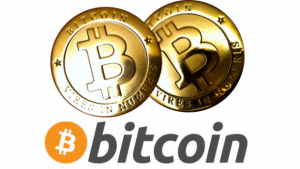Synonym Launches New Bitcoin Wallet App
Synonym CEO John Carvalho announced a new bitcoin wallet app at Tether’s Plan B conference. Synonym says it is working on software to support Bitcoin’s initial promise of a “peer-to-peer digital cash system” that can provide an alternative to centralized financial systems.
Synonym based the bitcoin wallet, Bitkit, on the Bitcoin Lightning Network-enabled Slashtags protocol. It enables passwordless web accounts, portable and censorship-resistant social media profiles, dynamic and automatically updated contacts, and interoperable data feeds.
Synonym’s page on Bitkit indicates that the wallet is still in beta testing. Anyone interested in trying the Android or iPhone version can get an invitation to participate in the beta.
Users can customize Bitkit with Slashtag-based widgets that include Bitcoin Price and Bitcoin Headlines. Synonym says a widget that shows Bitfinex users’ balance and data is “Coming Soon.”
Why Bitfinex and not Coinbase or Binance, though? Tether announced Synonym’s launch in November 2021. Despite Tether’s and Bitfinex’s early attempts to deny it, they actually have close ties.
At the time of Synonym’s launch, Carvalho hinted that integrating Tether and Bitfinex products into new Lightning Network-based properties was part of the plan from the start. He said that Synonym aimed to position itself to “integrate all of these companies’ products in a strategic way for Bitcoin.”
Carvalho cites Big Tech and Big Banks as concerns.
While announcing Bitkit, Carvalho said, “As more and more people lose control of their data to Big Tech companies, and lose control of their assets to Big Banks and institutions, we felt the need to create open alternatives that empower civilians to reboot the Web and the economy.”
Long-standing concerns about corporate use of data range from using it for eerily intrusive targeted advertising to inappropriate accessing or sharing of data by employees or malicious actors. Corporations have been accused of treating cybersecurity like an overpriced afterthought, leading to dangerous hacks and theft of sensitive data. Then the data is used for identity theft and fraud.
Regulators Pay Attention to Consumer Privacy, Security Breaches
The FTC recently took action the alcohol delivery service Drizly for lax cybersecurity practices that led to the exposure of data on 2.5 million consumers. In a rare move, it also took action requiring Drizly’s CEO to be personally responsible for future cybersecurity protocols.
The Consumer Finance Protection Bureau (CFPB) seemed to have similar concerns, proposing new rules governing financial institutions’ handling of consumer data.
“Dominant firms shouldn’t be able to hoard our personal data and appropriate the value to themselves,” said CFPB director Rohit Chopra.
…But Your Devices and Apps Could Do Better.
According to Carvalho and Synonym, apps like Bitkit could help consumers regain control over their sensitive data, get paid for it, or at least not have their data associated with them. Bitkit promises to help users regain control of their financial lives, but isn’t exactly the only bitcoin wallet with exchanges and other useful widgets integrated — and isn’t the only app that cares about privacy or at least making sure you get paid anyway.
With the Coin App, users can earn points toward prizes like an iPad, a little bitcoin, or an ether by sharing their location data, watching ads, and taking surveys. The Anonymization App promises to help with GDPR compliance by stripping documents you might handle as part of your job of identifying data. In the wake of SCOTUS striking Roe vs. Wade, some period tracker acts are scrambling to anonymize user data, so you know privacy is a big deal. If you have an Android phone, the video below shows a few ways that you can improve privacy.
And what does this have to do with Bitkit? Well, generally taking control of your financial life is not a bad idea. Same goes for your financial privacy. It shouldn’t be your bank’s or advertisers’ business if you looked into buying a new car, right? That’s why OFAC sanctioning addresses that have ever sent or received digital assets using Tornado Cash was such a big deal. It could hit people who just wanted to anonymize their transactions even though they weren’t doing anything illegal. Bitkit isn’t the only tool you could route your finances through to keep your privacy, but it promises what amounts to a shiny new wallet.
Yeah, but is anything to do with Tether trustworthy?
A final thought: How much do you trust Tether? The Tether/Bitfinex team previously lied about the close association between the two. They got targeted by regulators (by, like, a lot) and went through a period of not being able to keep a bank account open for anything. They even lost a lot of money when Crypto Capital Corp. folded on them. Tether may not even have the backing for USDT that it initially claimed to have.
Some observers like the anonymous Twitter account “Bitfinex’ed” might reasonably express surprise that Tether hasn’t suffered a collapse worse than the Terra/LUNA meltdown by now. According to CoinMarketCap, the circulating USDT supply is 69.10 billion. Assuming Tether stays at $1, Tether would have to cough up a lot of dollar bills if there is ever an effective bank run of large investors redeeming USDT for cash.
This basically means that you can sign up for Bitkit’s beta testing if you want to. However, it doesn’t seem to do anything useful that Coinomi can’t do — and might be impacted if and when Tether disintegrates.







